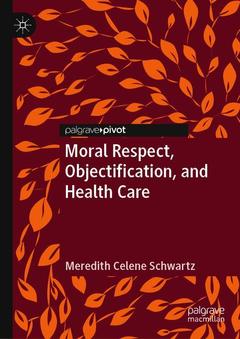Description
Moral Respect, Objectification, and Health Care, 1st ed. 2019
Author: Schwartz Meredith Celene
Language: English
Approximative price 52.74 €
In Print (Delivery period: 15 days).
Add to cart129 p. · 14.8x21 cm · Hardback
Description
/li>Biography
/li>Comment
/li>
This book fills an important gap in existing health care ethics literature by describing an egalitarian conception of moral respect which applies to autonomous and non-autonomous patients alike. It reframes questions about respect, from its target to the role that respect plays in our moral lives. Taking into account various forms of objectification, it suggests that the unique role of moral respect is to recognize a person as more than a mere object; to recognize them as an equally intrinsically valuable being who possesses dignity. Further, the book argues that respect is central to health care because medicine and experiences of illness are both inherently objectifying. Objectification is sometimes morally permissible, and other times morally troubling?a context of respect can help to distinguish between these situations. Because we can reduce others to mere objects in ways other than violating or denying their autonomy, the approach presented here can also accommodate non-autonomous patients directly without considering them as marginal cases.
Meredith Celene Schwartz is an Assistant Professor of Philosophy at Ryerson University, Canada. She has won several awards for her research from the Canadian Bioethics Society, the Canadian Institutes for Health Research, and the Trudeau Foundation, and is co-author of the book Gestational Trophoblastic Neoplasia: A Guide for Women Dealing with Tumors of the Placenta, such as Choriocarcinoma, Molar Pregnancy and other forms of GTN.
Fills an important gap in existing health care ethics literature by describing an egalitarian approach based on moral respect
Suggests that the unique role of moral respect is to recognize a person as an equally intrinsically valuable being who possesses dignity
Argues that respect is central to health care because medicine and experiences of illness are both inherently objectifying




